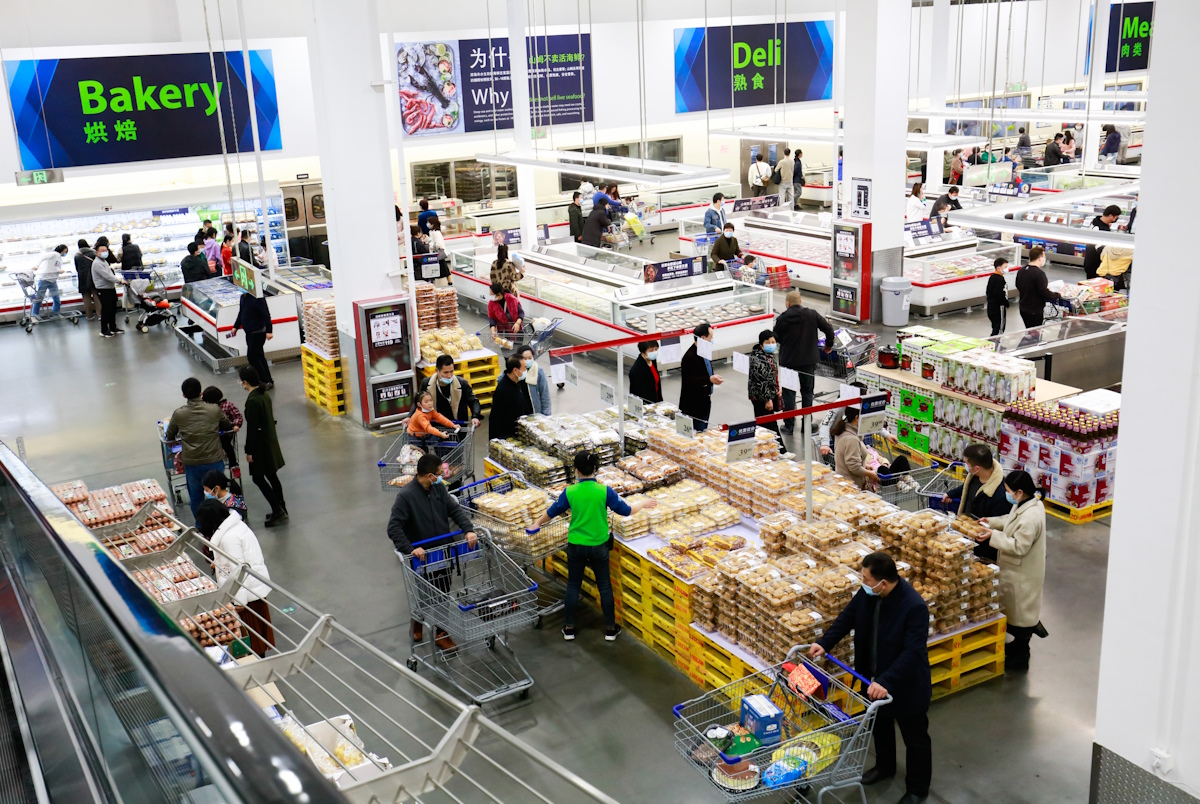China’s economy grew more strongly than expected in the last quarter. The real gross domestic product (GDP) growth rate rose to 5.3% year-over-year (yoy) in the January-March quarter, up from 5.2% yoy in the fourth quarter of 2023, beating market expectations of 4.5% to 4.9% yoy.
“The Chinese economy got off to a good start in the first quarter … laying a good foundation for achieving the goals for the whole year,” the National Bureau of Statistics (NBS) said when releasing the figures. Beijing’s official growth target is “around 5%” this year.
The growth was mainly driven by good performance in high-tech manufacturing and an uptick in public investment. However, the NBS acknowledged that “the foundation for economic stability and improvement is not yet solid.” Weakness in consumer confidence and real estate remains a challenge.
While total retail sales grew by 4.7% in Q1, demand for consumer products slowed to 3.1% in March, compared to 5.5% in the previous two months.
“According to the NBS survey, household confidence for employment and income nears the historical bottom, which dragged retail sales in March as demand has been released during the Lunar New Year holidays,” said Chaoping Zhu, Shanghai-based Global Market Strategist at J.P. Morgan Asset Management.
“Meanwhile, deleveraging among households continued and weighed on property sales. As a result, developers are under sustained pressure from slowing property sales and declining prices. The weakness in property market in return affected household consumption via wealth effect and local governments through less income from land sales,” he added.
Oxford Economics finds that retail sales generally “have held up relatively well despite the ongoing property troubles, suggesting that household spending is starting to decouple from housing amid a broader social acceptance of a multi-year housing correction process.”
Is China’s consumption story over?
“In the past few months, we have discussed shifting growth drivers in China, and this month’s data further illustrated this development. Investment was the key to Q1 GDP’s outperformance, while last year’s main growth driver of consumption has moderated,” said Lynn Song, Chief Economist, Greater China, at ING.
He further points to a negative wealth effect as an additional headwind for consumption. According to the “2023 White Paper on the New Middle Class” released by the independent financial media company Wu Xiaobo Channel, more than 43% of Chinese saw their wealth decline last year, compared with 31% in 2022 and 8% in 2021.
“Despite the narrative around rebalancing from an export-driven to a consumer-driven economy, we do not see any significant data supporting this transition,” US investment company MacKay Shields opined. “Given low consumer confidence, we do not see impactful wealth transfer-related policies. While rebalancing a big economy is difficult and takes time, it is debatable whether China is genuinely pursuing rebalancing to further empower consumers from current wealth levels.”
However, there are signs that consumer confidence in China is improving.
ING’s Song pointed out that “eat, drink, and play” continued to outperform in the first quarter, with catering (10.8%), tobacco and alcohol (12.5%), and sports and recreational products (14.2%) significantly stronger than the overall numbers. Also, online retail sales growth continued to outperform at 11.6% yoy in Q1.
Furthermore, the recent three-day holiday for the Qingming Festival showed the first improvement in tourism revenue per visitor since 2019. Per the Ministry of Culture and Tourism, travellers spent nearly $7.5 bn on 119 million trips within China, up 1.1% from 2019.
However, “the economy still requires further progress on broad consumption to emerge from its low-inflation environment. We currently foresee China’s CPI inflation averaging at 0.6% yoy for 2024,” said Yingrui Wang, China Emerging Market Economist at AXA Investment Managers.
Difficulties to persist for China’s economy this year
Even if Q1 GDP growth was better than expected, the year ahead remains challenging for China.
“External demand conditions remain unpredictably treacherous, as seen by the sharp downside surprise in exports across major trading partners (except ASEAN) in March,” said Louise Loo, Lead Economist at Oxford Economics. “This is even if Chinese goods are, for the most part, export-competitive. Cyclical disinflationary pressures (owing to a moderation in food and tourism-related services prices recently) also have the potential to entrench a more structural deflationary mindset among consumers.”
Analysts call for more proactive policy support. In a note, Goldman Sachs said, “We believe continued policy easing is still necessary, especially on the demand side… given structural challenges from the property downturn and still fragile confidence.”
“Policy priorities, including fiscal subsidies for home appliance trade-in and equipment upgrade, are expected to boost demand among households and industrial sectors. Meanwhile, further cuts to RRR and interest rates by PBOC are expected to lower financial costs. As the major policy tool to boost aggregate demand, fiscal spending and treasury bonds might reaccelerate after the recent slowdown,” said J.P. Morgan AM’s Zhu.










 Australia
Australia China
China India
India Indonesia
Indonesia Japan
Japan Malaysia
Malaysia Philippines
Philippines Singapore
Singapore South Korea
South Korea Taiwan
Taiwan Thailand
Thailand Vietnam
Vietnam Germany
Germany Hong Kong
Hong Kong USA
USA Switzerland
Switzerland Singapore
Singapore
 United Kingdom
United Kingdom








